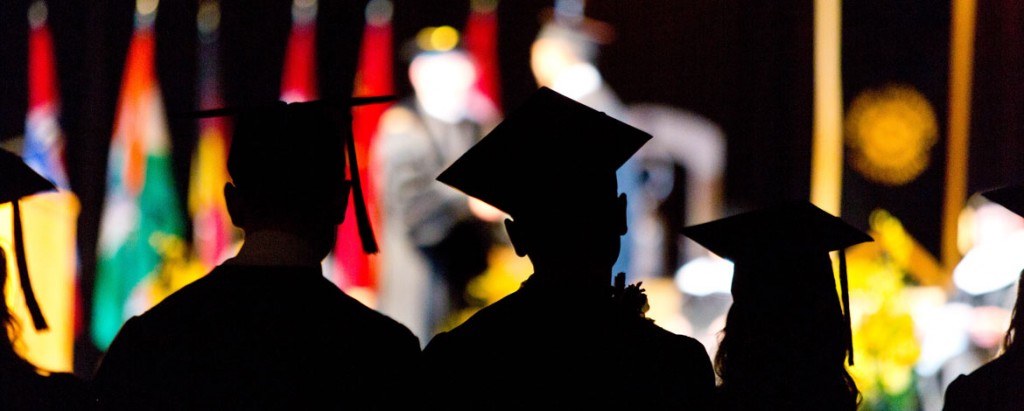Page 24 • (250 results in 0.115 seconds)
-

.” Hofrenning was born in Colombia and adopted by parents in Northfield, Minnesota. He said he gravitated toward Hispanic studies as a way to study his native culture. His religion minor is a nod to his mother’s career as a Lutheran pastor. The latter, he believes, can act as a force for progressive action. “I just think religion is a really important part of my theory of social change,” he said. “I had to understand the theology of different religions and how they play out in terms of liberating people
-
organometallic compounds. Prerequisites: CHEM 332, 341; Prerequisite or corequisite: CHEM 342. (3) CHEM 456 : Polymers and Biopolymers A course presenting the fundamentals of polymer synthesis, solution thermodynamic properties, molecular characterization, molecular weight distribution, and solution kinetics. Free radical, condensation, ionic, and biopolymer systems, with emphasis on applications. Prerequisite: CHEM 341; prerequisite or corequisite: CHEM 342. (3) CHEM 487 : Special Topics in Chemistry To
-
refugees, and he holds United Nations Relief and Works Agency (UNWRA) refugee status. After completing his primary and secondary education in Palestine, Bishop Younan studied deaconry at Luther Opisto College in Järvenpää, Finland (1969 to 1972), and theology at the University of Helsinki (1972 to 1976), obtaining a Master’s degree with a thesis on “Election in Deutero Isaiah.” He also undertook study and research at the Lutheran School of Theology at Chicago, Illinois (USA), in 1988, and was awarded
-
, and implies that language learning also entails acquiring a certain view of the world, certain distinctions that may not be part of the student’s native language. Examples might be notions of openness or closure conveyed by Russian verb aspects; different divisions of the color spectrum and concepts about categories of things, as in Chinese radicals. Many of these distinctions involve ideas about gender. For example, the radical for “woman” is present in many Chinese characters denoting moral
-
started coaching for the juniors team CBRC. Which she continued when she returned to the rowing team her senior year. Since beginning coaching in 2006, Megan has been coaching in some form everywhere she’s gone. While studying for a Master’s of Social Work and a Master’s of Theology at Boston University, Megan supported herself by coaching at Community Rowing Inc in Boston. During her 8 years at CRI, she coached multiple groups, but her favorite groups were the Master Recreation. She’s worked with
-
reasons. She had a healthy skepticism of theology, and responded to people as concrete bodies in need of care. The people who came to her door needed food, shelter, and care, and Magda provided it or saw that it was provided by others.4 Like Magda, the pastor’s cousin, Daniel, who came to run one of the many schools in Le Chambon, had a strong aversion to religious dogma and was deeply suspicious of all narrow religious belief. However, he saw in the work at Le Chambon a chance to contribute to the
-
deepest gratitude to my advisors; Professor Michael Zbaraschuk, Professor Jordan Levy, and Professor Peter Grosvenor. I also want to say thank you to all of the staff and faculty working in the Global Studies Department at PLU for fostering my love for a globally informed education.Critiquing Neoliberalism: Placing NAFTA and Its Attempt to Reform Under a MicroscopeUsing radical international relations theory, this capstone research project looks at neoliberalism and its hegemonic implementation
-
totalizing logics, logics that are assumed to be inherent, and perhaps most important, logics that, for wherever reason, a significant group of empowered people choose to enforce. Hannah Arendt wrote, largely in response to the crimes of Nazi Germany, that the most radical, most terrible crimes imaginable are perpetrated by organizations which “none of our traditional legal, moral, or common sense utilitarian categories could any longer help us come to terms with, or judge, or predict their course of
-
totalizing logics, logics that are assumed to be inherent, and perhaps most important, logics that, for wherever reason, a significant group of empowered people choose to enforce. Hannah Arendt wrote, largely in response to the crimes of Nazi Germany, that the most radical, most terrible crimes imaginable are perpetrated by organizations which “none of our traditional legal, moral, or common sense utilitarian categories could any longer help us come to terms with, or judge, or predict their course of
-
. Krujit. (2015). Violence and Resilience in Latin American Cities. London, UK: Zed Books. Esteva, G., S. Babones, & P. Babcicky. (2013). The Future of Development: A Radical Manifesto. Bristol, UK: Policy Press. School of Arts and CommunicationSOAC TutorialsApril Rose Nguyen, '19, Communication and Political Science:My tutorial on Political Communication focused on examining the effects of politics on the way information is distributed and interpreted through various media outlets. The first half of
Do you have any feedback for us? If so, feel free to use our Feedback Form.


